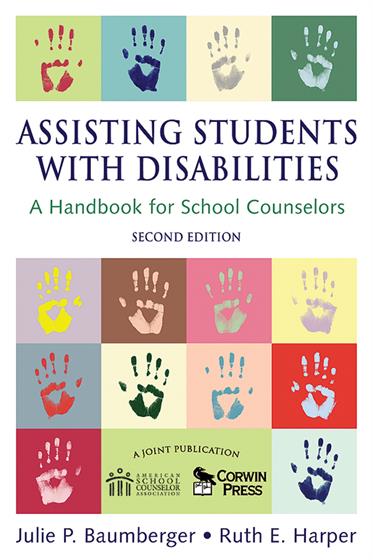Hands-on, Practical Guidance for Educators
From math,
literacy, science, equity, multilingual learners, and SEL, to assessment, school counseling,
and education leadership, our books are research-based and authored by experts
on topics most relevant to what educators are facing today.

Assisting Students With Disabilities
A Handbook for School Counselors
Second Edition
Improve counseling service delivery to students with special needs!
This new edition revisits the important role that school counselors play in the personal, social, academic, and career development of students with disabilities, couched in the context of NCLB, the reauthorized IDEA, and the ASCA National Model. Revised throughout, this essential handbook provides:
- Clear explanations of changes shaping the legal context for working with students with disabilities
- Tips for identifying students eligible for special services
- Guidelines for designing appropriate interventions collaboratively with other school staff and parents
- Strategies for integrating the needs of individual students in comprehensive school counseling programs
Product Details
- Grade Level: K-12
- ISBN: 9781412941822
- Published By: Corwin
- Year: 2006
- Page Count: 160
- Publication date: December 28, 2006
Review Copies
This book is not available as a review copy.


